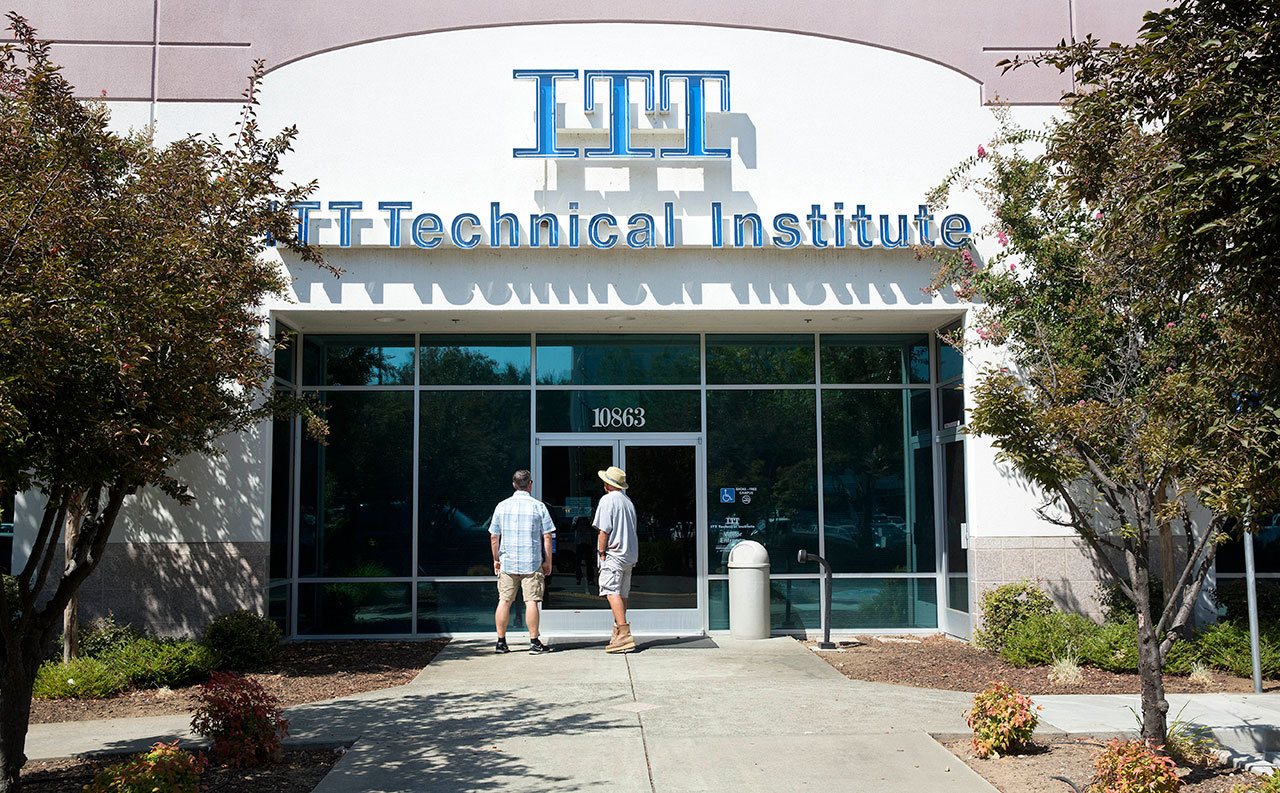By The Herald Editorial Board
Adult students starting or heading back to classes don’t expect to have their institution of higher learning yanked out from under them.
Students at Everett’s ITT Technical Institute, like those at more than 130 other ITT schools across the country, probably already knew it was a possibility if they had followed this summer’s news. Still, it’s more than an inconvenience when the doors are locked on the school you had planned to attend.
ITT, a for-profit private school, announced its nationwide closure on Tuesday, blaming requirements and sanctions by the U.S. Department of Education for forcing the decision.
Since at least 2014, ITT has been under increasingly stringent oversight by the federal agency, required to post larger and larger sums as surety, among other requirements. But the agency’s decision at the end of August to prevent ITT from enrolling any additional students who rely on federal student aid, including student loans, made the closure a certainty.
ITT, in a release, criticized what it called the Education Department’s disregard for thousands of students, including 168 in its Everett program, and more than 8,000 employees, The Herald’s Eric Stevick reported Wednesday.
Students have a couple of paths to choose from, according to a Department of Education website:
They can put their educations on hold and have their current student loans discharged, meaning they won’t be expected to pay the loans back; or
They can look to transfer their credits to another school and continue their studies elsewhere, keeping their current loans on the books. Already, Everett Community College has offered to help local ITT students enroll, though it may be too late for the fall session.
But there’s more than an inconvenience for taxpayers, too. The federally guaranteed student loans that will be discharged because of ITT’s closure will likely total $485 million, only a fifth of which will be covered by ITT’s collateral, according to a commentary in Forbes by Preston Cooper, who writes on the economics of higher education.
But the losses might have been higher had the federal agency waited much longer for ITT to find its balance. It and other for-profit institutions have been placed under increasing scrutiny as they charged higher tuition fees, took on more students with federal and private student loans, and were delivering poor results in terms of degrees and certificates.
A study released in May by economists Stephanie Cellini of George Washington University and Nicholas Turner of the U.S. Treasury, found that unless students completed a degree or certificate program, they actually earned less money after enrolling in a for-profit school than they would have if they had not enrolled at all.
And a significant number don’t graduate. About 58 percent of students at for-profit schools complete two-year programs and only 27 percent graduate from for-profit four-year programs, according to the National Center for Education Statistics.
A report by the U.S. Senate Health, Education, Labor and Pensions Committee from 2012 noted widespread cause of concern in the for-profit education industry. Among the report’s findings:
Taxpayers were investing $30 billion a year among 15 publicly traded companies who relied on student aid, G.I. Bill benefits and Department of Defense tuition assistance for 86 percent of their revenue. Compare that to about 17 percent of revenue from federal sources for public colleges.
Tuition, on average, was 19 percent higher at for-profits than at public universities and four times the tuition charged at community colleges, with tuition based more on what students could borrow than on actual academic costs.
That revenue then was used more for marketing, advertising and profit than for student instruction. In 2009, the report found, 22 percent of for-profit school revenue went to marketing and recruiting, 19 percent for profit and less than 18 percent for instruction.
The for-profit schools, seeking higher enrollments, used predatory tactics that misled students regarding costs, the time necessary to complete degrees, transferability of credits, completion rates and the success of other students in finding jobs after programs were complete.
ITT’s closure is a headache for students and a stunning loss for employees, but the business model used by ITT and other for-profits warrants tighter controls on how the schools generate their revenue, what they tell their students and the value of the educations they provide.
Talk to us
> Give us your news tips.
> Send us a letter to the editor.
> More Herald contact information.

























